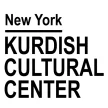Ahmet Kaya, musician and poet
 Ahmet Kaya (1957– 2000) was a Turkish–Kurdish folk singer who was persecuted by Turkish nationalist celebrities and authorities.
Ahmet Kaya (1957– 2000) was a Turkish–Kurdish folk singer who was persecuted by Turkish nationalist celebrities and authorities.
He was born in Malatya, the fifth child of a Kurdish father and a Turkish mother. His uncle was a singer and a musician, who inspired him to build his own bağlama. With his self-made instrument, he gave concerts to the family’s chickens. After his father witnessed one, he bought him a real bağlama. Starting in July 1966 at the age of nine, Ahmet gave concerts for his father’s fellow workers.
By 1977 the family had settled to Istanbul, where he and his father were employed by a phone company owned by Malatyans. Ahmet served in the Turkish army as a musician in the army’s orchestra in Gelibolu.
His fourth album, released in 1986, achieved success. That year he and his second wife, Gülten Hayaloğlu, moved to Beyoğlu. His newfound prosperity and correspondingly grander lifestyle brought criticism from leftists, even as the leftist political nature of his songs brought him to the attention of the Turkish government.
His 1994 album Şarkılarım Dağlara included songs focusing of the Kurdish-Turkish conflict between the PKK and the Turkish army raging in North Kurdistan.
On 11 February 1999 he participated in a televised music awards ceremony where he was to be named Musician of the Year. During the ceremony, he said he wanted to produce music in Kurdish and mentioned that he had recorded a song in Kurdish (“Karwan,” released on the Hoşçakalın Gözüm album in 2001) and intended to produce a video to accompany it.
His words caused an uproar among the celebrities at the event. Others performers started singing nationalistic songs. Then celebrities who were present literally threw forks at him. Kaya’s wife described the attack: “All of a sudden, all of those chic women and men, they all turned into monsters, grabbing forks and knives and throwing them at us, insulting, booing. Imagine the atmosphere changing in just five minutes, almost a Kafkaesque transformation.”
He was prosecuted for the incident and left Turkey in an act of self-exile, moving to France. In March 2000, a Turkish court sentenced him , in absentia, to three years and nine months in prison on the charge of spreading separatist propaganda, based on an allegation that was later proven to be falsified.
Later in 2000 he died of a heart attack in Paris, at the age of 43. He is buried in Père Lachaise Cemetery. In November 2021, his grave was found to have been vandalized. A year later, in November 2022, a commemoration was held at his gravesite by his widow and several cultural representatives. Gülten Kaya said: “Ahmet’s greatest wish was the togetherness and unity of the people of all parts of Kurdistan. He also worked on this here. He is no longer with us and I find it meaningful to repeat this wish. The Kurdish people are one big family. I am in every woman who is murdered in Iran-Kurdistan. History tells us that we must stand together against racism.”
Discography
Ağlama Bebeğim (1985)
Acılara Tutunmak (1985)
Şafak Türküsü (1986)
An Gelir (1986)
Yorgun Demokrat (1987)
Başkaldırıyorum (1988)
Resitaller-1 (1989)
İyimser Bir Gül – Kod Adı Bahtiyar (1989)
Resitaller-2 (1990)
Sevgi Duvarı (1990)
Başım Belada (1991)
Dokunma Yanarsın (1992)
Tedirgin (1993)
Şarkılarım Dağlara (1994)
Beni Bul (1995)
Yıldızlar ve Yakamoz (1996)
Dosta Düşmana Karşı (1998)
Posthumous:
Hoşçakalın Gözüm (2001)
Biraz da Sen Ağla (2003)
Kalsın Benim Davam (2005)
Gözlerim Bin Yaşında (2006)
In June 2012 the Turkish Association of Magazine Journalists awarded Ahmet Kaya its Special Prize.
In October 2013, on what would have been his 57th birthday, Ahmet Kaya was awarded the Grand Presidential Prize in Culture and Arts in the music category.
Visit Ahmet Kaya’s website: www.ahmetkaya.com.















